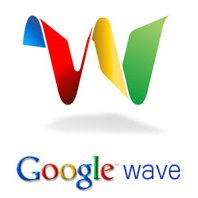
I don’t think there’s one single reason why Google Wave hasn’t taken off like many expected it would. I’m sure there are still some people who are actively using it, but I’m fairly certain that these people are in the minority. For some reason, Wave was unable to really hook users and provide them with a reason to keep coming back. I think the main issue is the serious overlap that exists between Wave and many of the other services we are already using today. Back in October, I wrote about Wave and explained it as a blend of email, instant messaging, and document collaboration. Unfortunately, it was not good enough at any one of these tasks to win over enough users. GMail is a way better email client. Text messaging, Twitter, and instant messaging are still far better options for instant communication. Wave is slow and awkward for instant messaging between two people. It’s still pretty good for document/code collaboration but I’m not sure it can be used in a practical sense. It’s missing some essential features that you would find in MS Word or even Google Docs.
Furthermore, I really feel like Wave missed the mark with the user interface. They tried really hard to create a fresh looking UI, but broke some of the basic conventions we’ve become accustomed to. The scrollbars are over-engineered and it’s frustrating to work with the Edit/Done buttons. The nested replies and custom privacy functions were neat, but they often became confusing and glitchy. Finally, deleting a wave from the inbox didn’t actually delete it. If another user posted in that wave, it would return. These sort of user experience quirks made it difficult for even savvy internet users to get the hang of Wave. I think the developers explored some pretty cool concepts, but I’m not sure all of their “improvements” were necessary.
Can Wave make a comeback and become a technology that we can’t live without? I don’t really see this happening in it’s current form. There’s just too much overlap. However, I think Wave introduced some fascinating technologies with their federation protocol and the ability to handle many simultaneous edits via the use of their transformations. There are plenty of applications where Google could merge some Wave features into their existing products. One of the mistakes Google made with Wave was not integrating it into GMail. Just last week Google integrated their new Buzz product into GMail. The result is pretty mixed, as some users are not happy with a social network invading their inbox. However, I think Wave would be able to complement some of the existing functionality of GMail without it feeling like it was just awkwardly shoved in there or invading privacy.
It’s funny how quickly things can change in this technology landscape. If you read my post from late October, you will see that I was very positive about Wave catching on and becoming a daily tool of mine. Clearly, I was blinded by the hype just like everyone else. I’m still really excited to see what happens in the future for Wave.

Comments